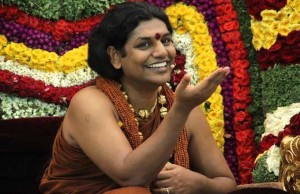
I want to preface this post with a confession: I won’t really be able to answer this question. Hinduism is too vast to be bound by words. They’re just too small to describe something so infinite. However, I get this question too often from my friends and I am always at a loss for words trying to explain it to them. So, I will attempt to gather my thoughts and understanding of my religion here in a somewhat succinct manner. But honestly, anything I write could never do it justice.
Hinduism is so difficult to define because there is not just a singular path that every Hindu goes down. Rather we are given the freedom to cater our path to our own lives. We have various Sampradayas (traditions) to follow: Shaiva, Vaishnava, Shakta, Aghori, etc. We have 100’s of Gods to worship through: Shiva, Devi, Vishnu, Lakshmi, etc. We have festivals every single day of the year to celebrate: Diwali, Navaratri, Thaipusam, Shivaratri, etc. We have numerous sacred scriptures to learn from: the Upanishads, the Vedas, the Bhagavad Gita, the Mahabharata, etc. And the beauty is that we aren’t just confined to a single set of these but are encouraged to enjoy all of them. There is no conflict or divide. Hinduism invites us to experience all of the best things in life.
There is a single thread that ties all of these aspects of Hinduism together: the idea of the ultimate. These different systems are tools to help you realize your highest state of consciousness. Hinduism challenges you to constantly seek and expand to your highest possibility, enlightenment, moksha, nirvana, whatever you want to call it. There is no one way to get there but the goal is to get there.
In Hinduism, the idea of God is not just some figure in the sky watching over us but rather that God is the physical manifestation of the entire Cosmos itself. It is the understanding that God is everywhere and in everything. That’s why there are so many Gods, one for each state of being (which I won’t go into detail about now). The form is just there to help us connect with the formless. We are constantly reminded of our oneness with God to help us experience that ultimate state.
Now, I know all of that sounds like a bunch of metaphysical gibberish. And if you’ve never been exposed to any of it, it probably is. I mean what even is enlightenment? To be honest, I can’t really tell you because I don’t really know, yet. I guess you can never really know till you experience it. However, to put it into some context, I will say it is the constant state of pure, unadulterated bliss. It is not some superhuman form of existence but rather a state of knowing yourself completely, and enjoying every aspect of your existence. Which probably doesn’t clarify anything for you, but hey, I’m still learning! That’s why we have Gurus, who have experienced the ultimate, to guide us there.
This explanation of Hinduism may not satisfy you. If you’re looking for the rules and regulations, there are none. Hinduism is not a binary system of do’s and don’ts. Hinduism is a lifestyle. It is about enriching yourself and others with consciousness. As, my guru, Sri Paramahamsa Nithyananda Swami so beautifully puts it, “Hinduism gives the right introduction about you to you.”
An aside:
I have always been slightly afraid to explain my religion to anyone because I was worried what people would think of me. I have tried to hide it away but in the process, I have suppressed so much of who I am. However, I have heard and seen so many misconceptions lately and I really want to break those. I hope that this (very) brief cliff notes introduction of Hinduism gave you a better understanding about it. If you have any questions or if I did a terrible job of explaining it and you want to tell me, please leave a comment below. Thanks!
–Poornima